Bradley Cooper And The Long Road To Bringing Leonard Bernstein To Cinematic Life In ‘Maestro’ – Venice Q&A With Producer Kristie Macosko Krieger
- Oops!Something went wrong.Please try again later.
- Oops!Something went wrong.Please try again later.
- Oops!Something went wrong.Please try again later.
- Oops!Something went wrong.Please try again later.
- Oops!Something went wrong.Please try again later.


EXCLUSIVE: With the Venice Film Festival opening tonight, all eyes are on Italy to give us some early clues as to what some of the most anticipated movies of the season will be delivering in terms of their awards potential. Certainly one of the more eagerly awaited expected contenders is Bradley Cooper’s Leonard Bernstein movie, Maestro.

It comes with one of the most impressive pedigrees of the year — not only because it is Cooper’s second directorial effort, one in which he not only stars as Bernstein but also co-wrote (with Josh Singer) and was one of six producers along with such legends as Steven Spielberg and Martin Scorsese. Cooper’s hit first film as director, A Star Is Born with Lady Gaga, also was chosen for Venice in 2018, a boost that gives a star-driven film worldwide attention in an instant. That was the hope when Netflix decided to bring Maestro to the Lido, fully expecting to make a big red-carpet splash with Cooper and co-star Carey Mulligan, who plays his wife, Felicia Montealegre Cohn Bernstein.
More from Deadline
Venice Film Festival 2023: An Edition Unlike Any Before Is Throwing Up Plenty Of Talking Points
Venice Film Festival @ 80: Memorable Moments & Stars 1932-2023 – Photo Gallery
'Ferrari's Adam Driver Proud To Represent A Movie "That's Not Part Of The AMPTP" - Venice
RELATED: Venice Film Festival 2023 Photos: Premieres, Red Carpets And Parties
Alas, the actors and writers strikes have dampened those initial plans. So when Maestro has its grand world premiere Saturday night in Venice, it will be without Cooper, without Mulligan, without any of the cast, without co-writer Singer and without any of its celebrated producers.
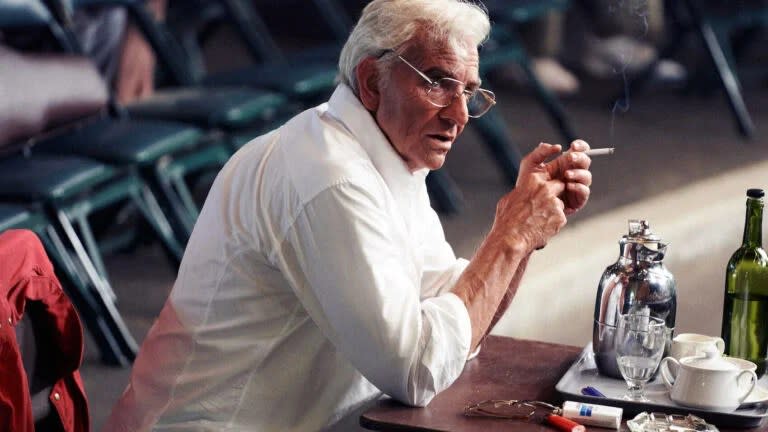
In what has to be an opportunity, though that none of them expected, some of the key below-the-line artisans who helped make the movie what it is will be representing Maestro on the red carpet and in front of the world’s paparazzi, as well as inside the theater. Its brilliant two-time Oscar winner Kazu Hiro, who did the remarkable Leonard Bernstein prosthetic makeup design, will be joined by two-time Oscar-winning costume designer Mark Bridges, production designer Kevin Thompson, conducting consultant Yannick Nezet-Seguin, film editor Michelle Tesoro, production sound mixer Steve Morrow and casting director Shayna Markowitz. Also there for the debut of the story of their parents’ marriage and love affair will be the three Bernstein kids, Jamie, Nina and Alex, who have given their wholehearted endorsement to the film and to Cooper. That included last week, after the trailer broke and some rather absurd internet chatter appeared criticizing Cooper’s prosthetic nose, which in the film — like the rest of Kazu’s — work, appears flawless.
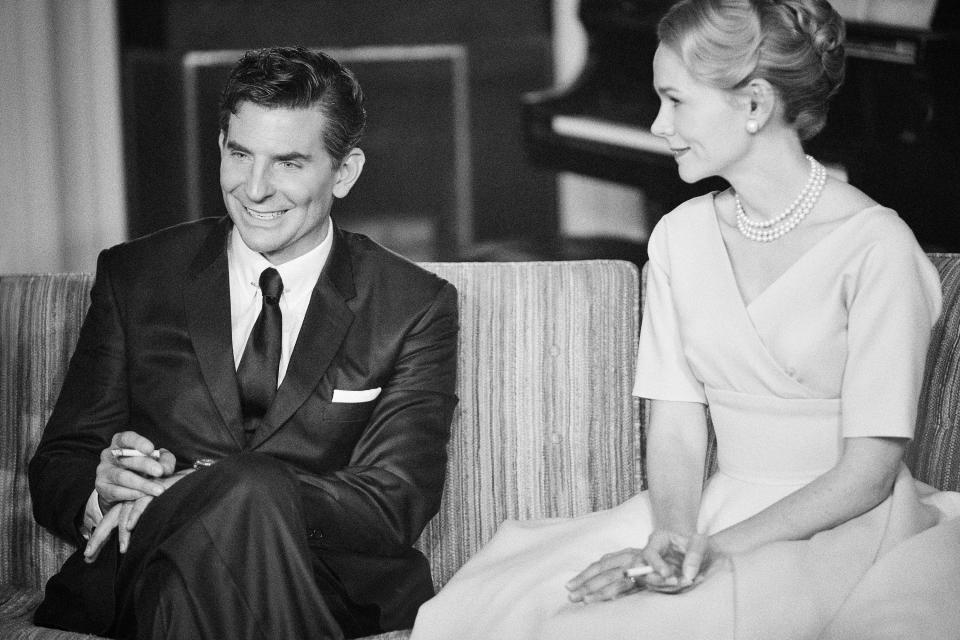
Another producer on the film, Spielberg’s longtime colleague, Oscar-nominated Kristie Macosko Krieger, also will not be going to Venice. Once the strikes hit, she told me, they had some long discussions about what to do, even perhaps changing the release date. “It’s interesting. Go to Venice, don’t go to Venice,” she said. “Push the movie. Venice is special for Bradley. He premiered A Star Is Born there. I don’t know if you know the famous story, but lightning struck the theater when he was premiering the movie there, so it started something incredible for him.
“So, when we got into Venice, Bradley was thrilled and called the kids,” Krieger continued. “The kids were thrilled. The Bernstein kids said they would come to the premiere, and then the strike happened and Bradley couldn’t go. None of the above-the-line people could go. None of the talent could go, and we all got on a call and it was like, ‘Do we push the film? What do we do?’ And it was Bradley’s idea. Bradley was like, ‘No, let’s premiere the film in Venice and we will have all the below-the-line talent go and represent the film.’ So, you know, while I wish that all the talent could go, now we have the spotlight falling on the craftspeople that made the movie possible. So I think that’s kind of actually amazing. … They’re all going to represent our film because we can’t be there. It was an incredible idea, and I hope that they’re going to get to take the bow at the end, and they richly deserve that bow. I’m thrilled that they’re going to be there.”
Looking forward to that moment on Saturday, Krieger shared the story behind the making of the movie with Deadline for this Venice preview.
DEADLINE: This has been a long circuitous route to get to the screen, even involving Scorsese and Spielberg each planning to direct at different points. Take me through the development.
KRISTIE MACOSKO KRIEGER: So, back in 2008 Fred Berner and Amy Durning pursued the rights to it because they thought there was something valuable in the cinematic retelling of the story of Leonard Bernstein. And so, they developed it with Marty (Scorsese) attached to direct it. Josh Singer wrote the script for them and then when Marty fell out as a director he stayed on as a producer. Josh Singer who we worked with on The Post and had a relationship with Steven and I brought it to Steven. And so, Steven thought it would be an interesting movie and he signed on to direct it and I signed on to produce it. And so, then we needed to look for a Leonard Bernstein. And so, oddly right at the time that we were doing this, Dave Bugliari (Cooper’s agent) had heard that there was a script out there about Leonard Bernstein and he called me and he said ‘listen Bradley Cooper has been obsessed with conducting since he was little and would you consider him to play the role’ and I was like well that’s interesting.
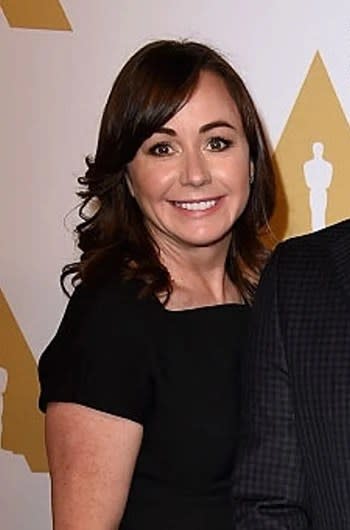
And so, I went to Steven and Steven thought that is a great idea, and so we sent the script to Bradley. He was on vacation with his family. He literally read the script in less than two hours and started texting Steven about it and said ‘I’m in’. The idea of this is amazing. And so, we were sort of, I don’t want to say off to the races but we were working on the movie with Steven directing and Bradley starring, but then Steven was moving towards making West Side Story… so Steven was no longer going to direct and Bradley like right at that time, I feel like it was March or April of 2018, Bradley said ‘Steven if you’re not going to direct this can I throw my hat in the ring? I just finished A Star Is Born. I’m just putting the finishing touches on it, can you watch the movie, and if you like the movie I’d love to do the job.
DEADLINE: So it was A Star Is Born that got him the job?
KRIEGER: Well he invited me, Josh, and Steven to watch it long before the film came out, and Steven watched the movie and like 20 minutes into the film sort of creeped over and he said “You are directing this movie, you must direct Maestro.” So, then that’s in 2018 at that point. The rights were lapsing to the project and Bradley had to convince the Bernstein family that he was the right person to take on the project. And so, he went to the family. He got the rights. He’s now directing and producing, and they realize he would handle this film with intricate care, detail. He really went to the family and sold himself on this and then it was like okay now we’re going to make this movie, and Bradley didn’t want to make a biopic.
DEADLINE: It is very clear this isn’t a biopic, but more the story a passionate and very unusual marriage and relationship. Really that is what the heart of it is, right?
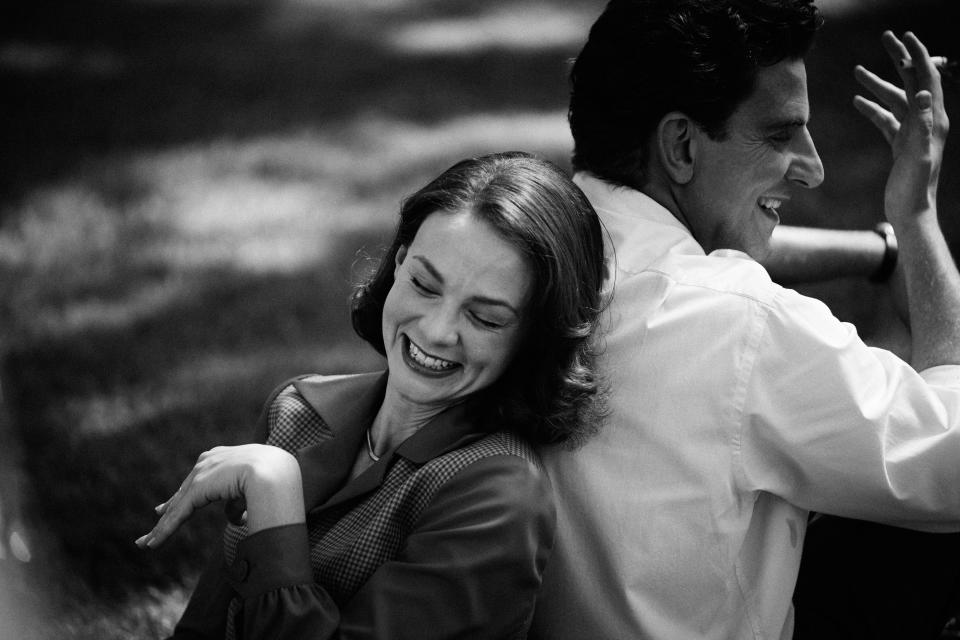
KRIEGER: He 100 percent did not think that was interesting. If it was going to be a biopic it should be a documentary because Leonard Bernstein is the most photographed and has so much video on him that it would be more interesting to make a documentary, and he wasn’t going to make a documentary. He just started researching like, “What’s my way into the story? How am I going to tell the story best?” And so, he thought the family, the love story, the marriage, and like on A Star Is Born he had to find what’s the nuclear power in the story and for A Star Is Born it was Lady Gaga, and in this movie it’s Leonard Bernstein’s music, and so he married the two. He was not making a biopic. I can’t even emphasize that enough. He was very insistent that we are not making a biopic and we did not make one. We made a story about love and about marriage.
DEADLINE: How closely involved were the three kids?
KRIEGER: Well, they only really had to give us the rights, right, and step back and we would turn their family story into a movie, but we were constantly aware that we were making a movie about a world class cultural icon that happened to also be a husband and a father and these kids were the best research. They were the best tools we had. We wanted them to be involved as much as possible if they were open to it, and Bradley included them literally every step of the way. So, as Carey and Bradley were researching their roles they would ask questions to the family about, you know, their parents and encouraged feedback on their transformations. They answered questions endlessly about their parents, down to the smallest detail, and Bradley and Carey had them as sounding boards all the way through, and the authenticity is there because the family was a part of this making this all happen.
DEADLINE: For years Hollywood has stretched the truth in many films about famous musicians. Leonard Bernstein was bisexual. Right from nearly the opening frames that aspect of his life is there, and clearly in his marriage as well. Was the family fine with all that?
KRIEGER: There was no other way to make it. You had to show it authentically. Fully and authentically.
DEADLINE: The prosthetic nose Bradley wears has weirdly gotten a lot of press, even as the movie was sight unseen.
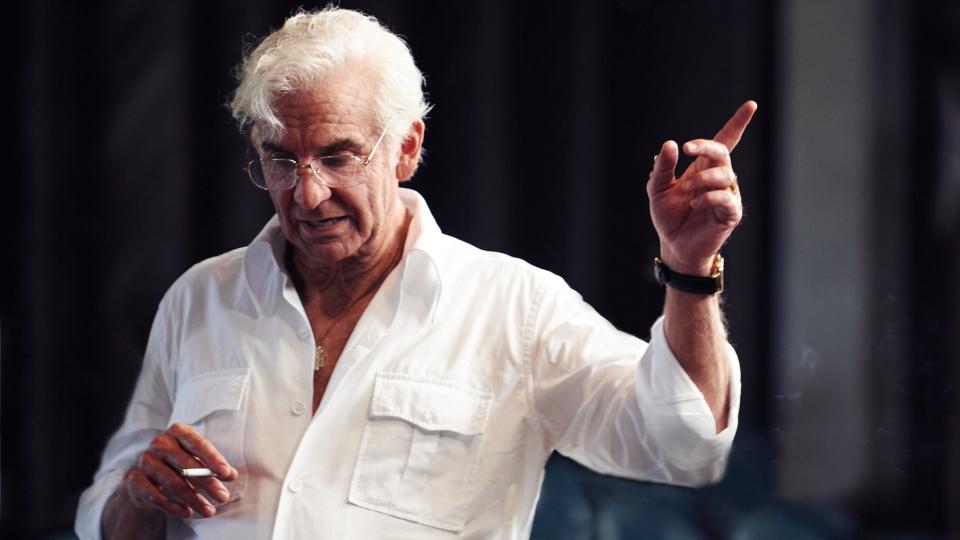
KRIEGER: I know we have to talk about the makeup but yes. Bradley was not making this movie unless he got the details right. He worked with Kazu for three and a half years and he worked with somebody else before he started working with Kazu. He literally needed to perfect the looks. There’s five stages of makeup. Five different stages. It’s like we start in the 40s and we end in the 80s. Literally Bradley almost moved into Kazu’s workshop in Northridge for those years and they would go back and forth and they would make sure. They would do test after test in stage after stage of Lenny’s life when he was in his 40s, when he was in his 50s, when he was in his 60s, when he was 70. He had to get it right. Bradley was not putting this story on film unless he had it right and he worked tirelessly. He kept saying is this a fully realized human being and it was. It was a fully realized human being of Leonard Bernstein. To me it felt accurate.
DEADLINE: I would imagine that particular internet white noise will just fade away once people see the movie. I guess it goes with the territory in this day and age of social media
KRIEGER: I hope so. The family was bowled over. The family thinks he looks like Leonard Bernstein.
DEADLINE: This is only Bradley’s second film as a director, and this is obviously a major job as an actor, and he also co-wrote it, and is a producer with you guys. How does he pull off all of that? What is his secret in running things, or as a producer do you make it easier since he is in every scene?
KRIEGER: Well, you know, we had I’m going to say three tenants that were like we’ve got to make the film this way. These were the truths that we had to go through. We did all the prep work. We had to do all the prep work, but we wanted to go to the places that Lenny and Felecia had been, like the places they actually lived, the hallowed ground where they were (Editor’s note: it was shot in Connecticut, Massachusetts, New York, and the UK, in many of the places the Bernsteins lived and worked). We needed there to be live music. Conducting at the cathedral is with the London Symphony Orchestra. We did that live. And we wanted to shoot on film. So, Bradley researched this movie for years and years. I will tell you once he signed onto this movie and he was trying to come up with how he was going to make it he would call me, he would text me. We would meet. He would pitch to me fully realized scenes of what he was going to shoot in this movie and then four years later, five years later to actually see him take his ideas that he had pitched to me and put them on film was like incredible.
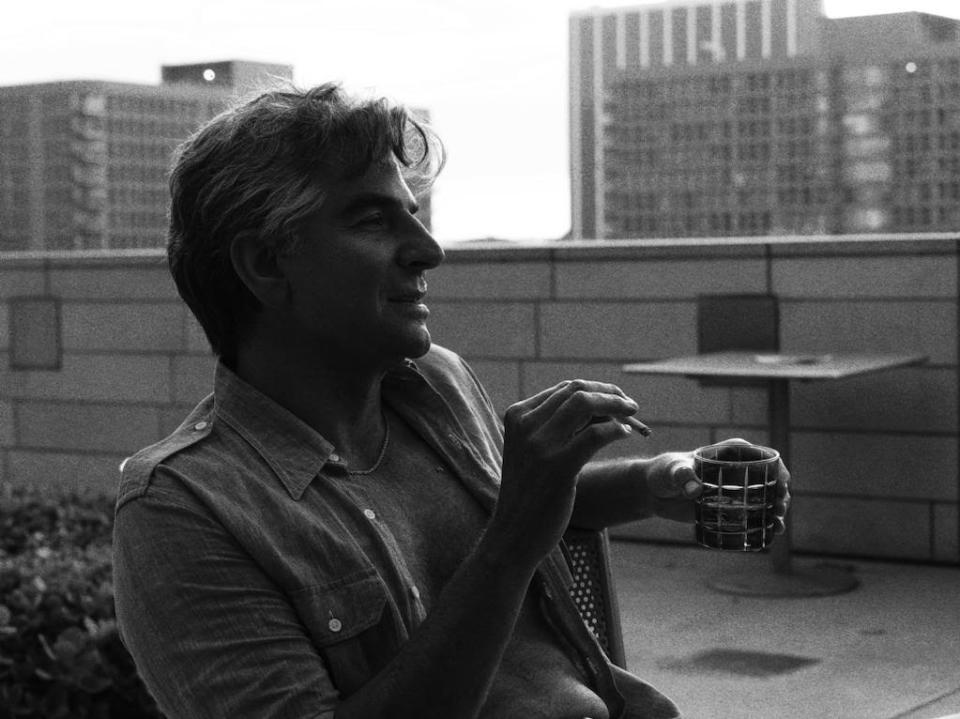
He was prepared. He was like we are going to be prepared to make this movie. We’re not doing it unless we’re prepared, and you know, when you have a director who’s prepared…we did camera tests. We did a bunch of camera tests where we tested the hair and the makeup and the wardrobe and we worked on film stock. So, Bradley didn’t just tell me what he was going to do as a filmmaker. He actually showed me what he was going to do as a filmmaker. So, by the time we got to the set we were a group of people that knew exactly what we were doing, and so we were just there to complete the vision that Bradley had from the get-go. And so, for me it was amazing for a man who’s made his second film. He knew exactly what he wanted, and he made it easy for me to help him achieve a vision. I actually knew what the vision was.
DEADLINE: How did the casting of Carey Mulligan come about?
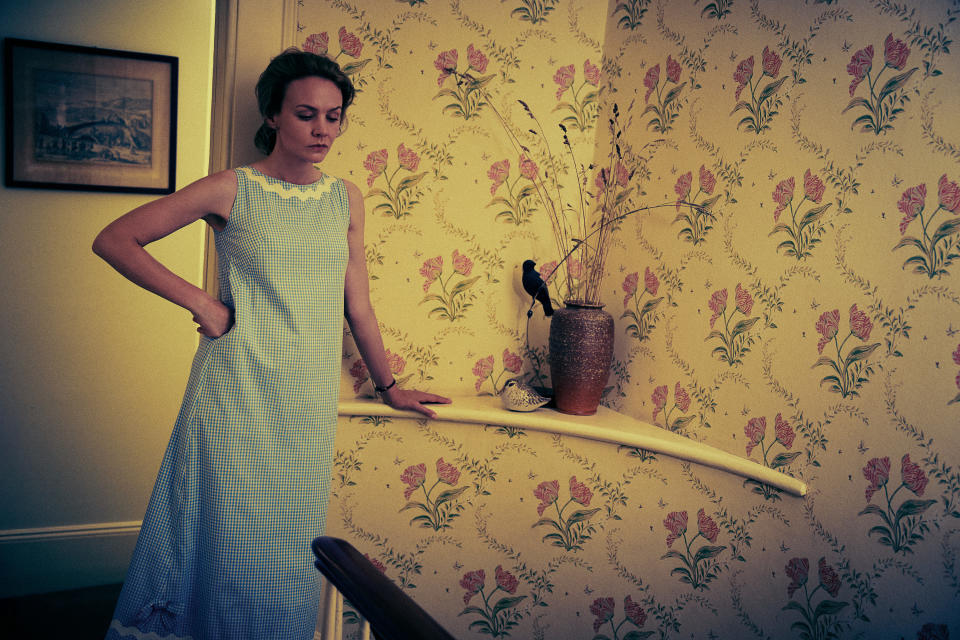
KRIEGER: It was Bradley’s idea. Yeah. He’d always really liked her in theatre and her films are extraordinary, but she has that quiet elegance and that quiet strength that is Felicia and he saw that in her, and you know, interestingly in real life she’s married to an artist. So, she knows something about being in a relationship with a real, I’m going to say rock star. She went to Chile to meet with Felicia’s family doing the research. Again, both of these people did the research. It’s like research, research.
DEADLINE: The cinematography , and the choices that were made, aspect ratio changes, black and white and color. Matthew Libatique shot it.
KRIEGER: Yeah Bradley knew he wanted to shoot on film. So, they were all creative decisions, and they were all deliberate creative decisions. So, I think you would have to talk to Bradley about why he made those decisions. He wanted to convey specific time periods and tell the story the way it was lived, right? In the 40s and 50s everything was in black and white. Then you get into 70s and it goes to color, and you see that beautiful image on the back of Carey. He knew what he was doing. Then in the 80s he changed the aspect ratio to 1:85.1. So, every single thing that they did was 100 percent deliberate with a lot of care and thought put into the process.
DEADLINE: How involved was Spielberg during the actual making of the movie?
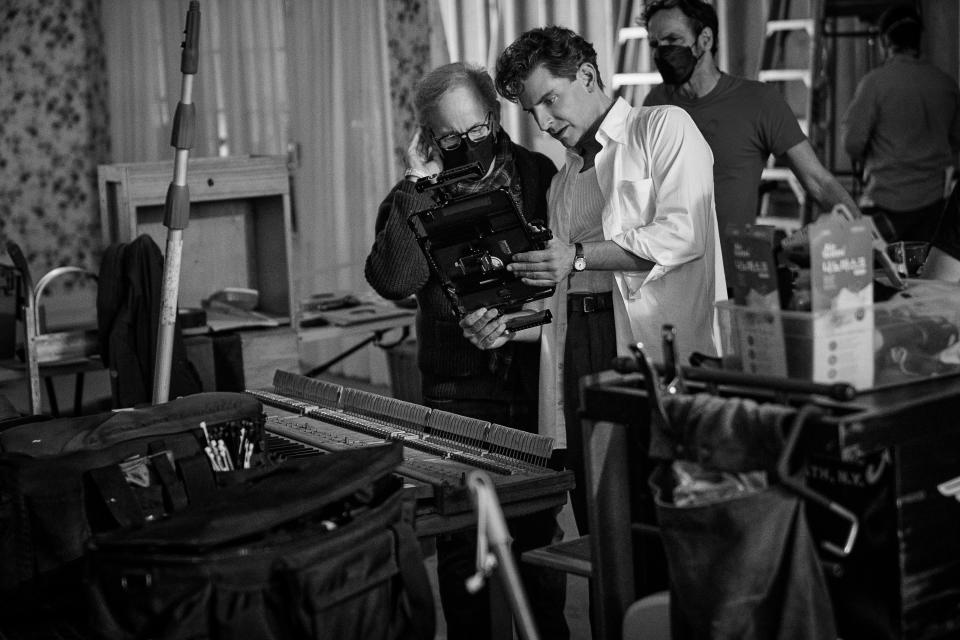
KRIEGER: He was the sounding board for Bradley. He read every draft for the script. We were in post-production on The Fabelmans when Bradley was actually making Maestro if I remember correctly, and Steven was just available for all of it. He came to the set a few times, but we tried to keep the set as contained as humanly possible. Number one it was COVID and number two we just wanted to get to the business of working. So, we had very, very few people on set when we were actually shooting the film, but Steven was available for feedback every step of the way. He watched every cut of the film with Bradley. He was involved in all of it.
DEADLINE: Music and Sound was of course so crucial to all this, as was Bradley being believable as one of the greatest composers and conductors who ever lived.
KRIEGER: Here’s the thing, Bradley Cooper was obsessed with conducting as a kid. He asked Santa Claus for a conducting baton when he was little, right? One of the first presents he remembers asking for when he was a kid. Bradley Cooper was the right person to direct this movie when it’s all said and done. It got made by the right person to make the film… Yannick was our conducting consultant and Bradley worked with him for a fair amount of time. Bradley watched him. He sat and watched Gustavo Dudamel. He went to Berlin with Dudamel when he was doing eight days of rehearsals and performing. He was like soaking it all in. He sat with the New York Philharmonic and all of their conductors and guest conductors that come in and conduct and Michael Tilson Thomas was one of those, and Thomas was one of Lenny’s proteges and Bradley sat with him and got stories about Lenny from Michael Tilson Thomas.
Maestro opens November 22 in select theaters and begins streaming December 20 on Netflix. Its world premiere is Saturday, September 2, at the Venice Film Festival.
Best of Deadline
2023 Premiere Dates For New & Returning Series On Broadcast, Cable & Streaming
SAG-AFTRA Interim Agreements: Full List Of Movies And TV Series
Sign up for Deadline's Newsletter. For the latest news, follow us on Facebook, Twitter, and Instagram.

